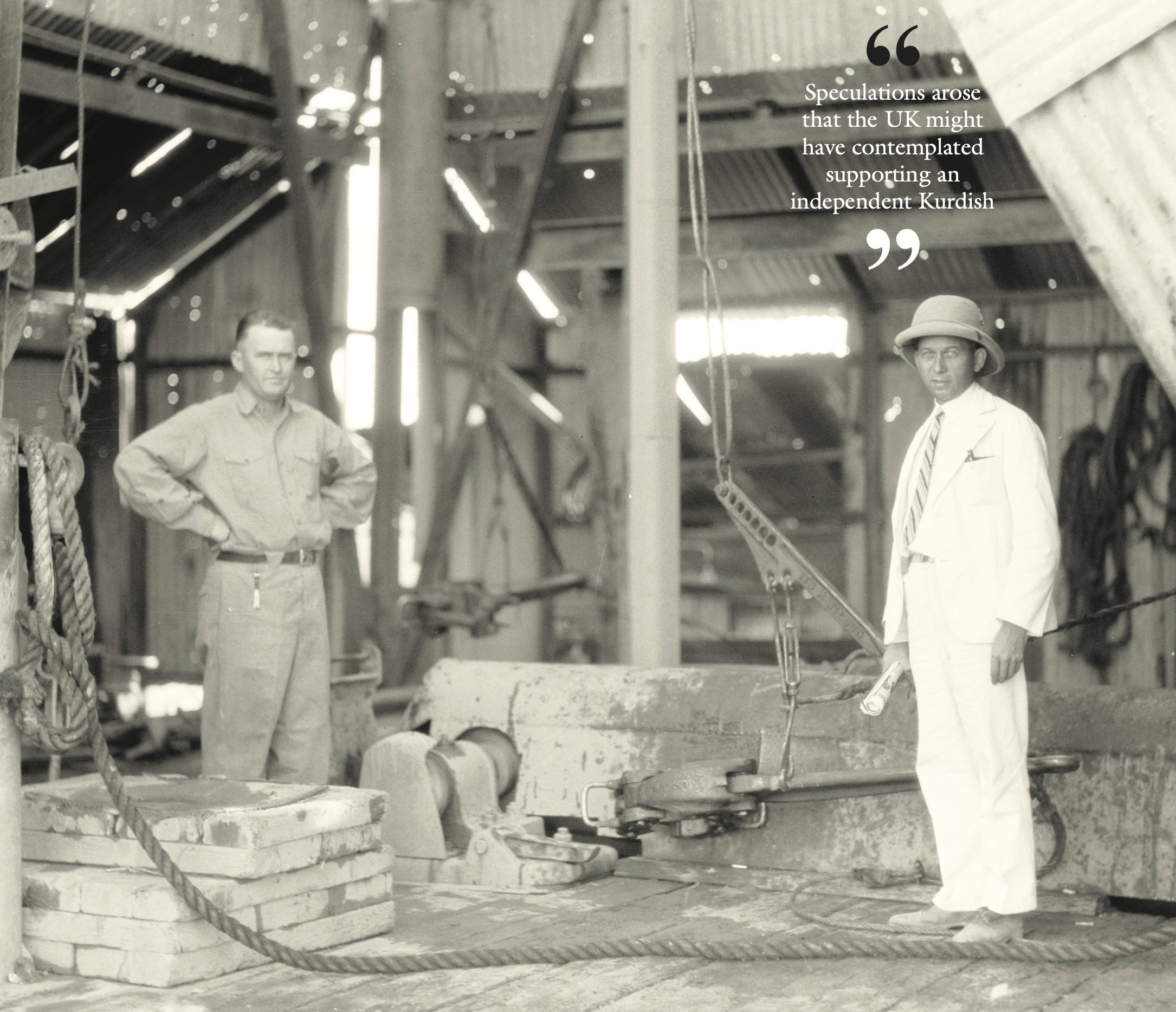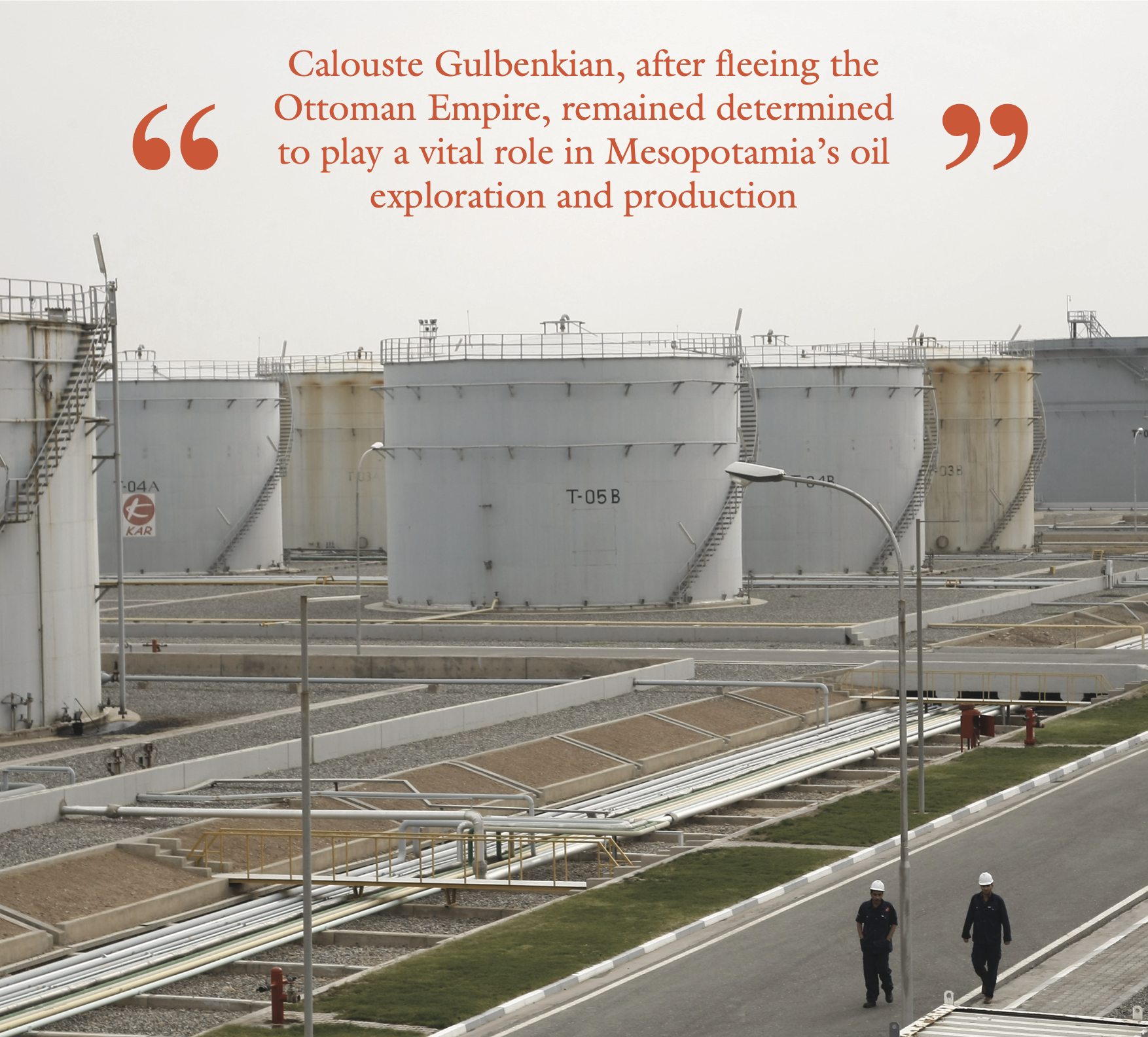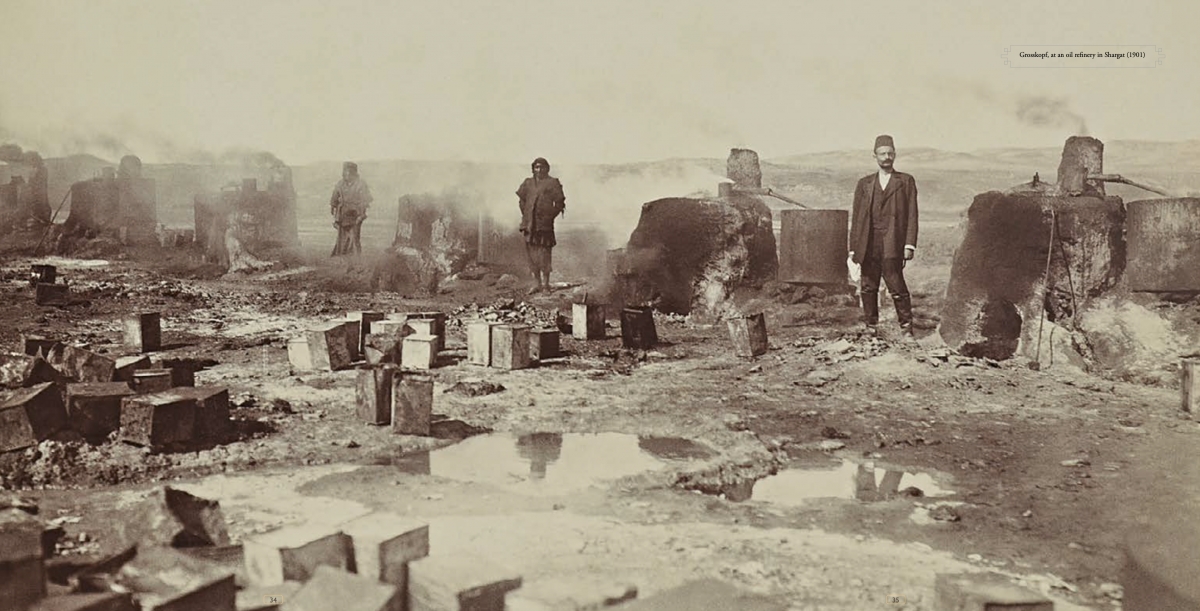This article explores how oil played a crucial role in shaping the decision not to grant the Kurds a state during the Treaty of Lausanne negotiations in 1923. The UK and its allies, understanding the strategic importance of oil for economic and military power, were cautious about granting the Kurds control over the oil-rich Mosul vilayet (province). The complexities and potential instability of sustaining two additional states, Kurdistan and Israel, led the UK to incorporate the Mosul vilayet into the new state of Iraq. The consequences of this decision continue to impact the Kurds' pursuit of self-determination and stability in the region to this day.
The pivotal role of oil in shaping the decision not to grant the Kurds a state during the Treaty of Lausanne negotiations cannot be overlooked. As the aftermath of World War I unfolded, global power dynamics were in flux, and access to valuable resources, particularly oil, emerged as a critical factor in defining the new world order. The victorious nations, especially the United Kingdom, were acutely conscious of the strategic significance of oil in upholding economic and military supremacy.
In the early 20th century, the Kurds' longing for self-determination was evident in the region. The creation of a Kurdish state would have necessitated the allocation of territory, and the Mosul vilayet, renowned for its substantial oil reserves, became a central point of contention. Granting the Kurds control over this oil-rich area raised concerns among the participating nations, notably the UK.

Oil and naval power
We should remember that in the early 20th century, two momentous events set the stage for significant geopolitical shifts that would reshape the Middle East forever. First was the technological revolution in naval warfare, with the British Admiralty replacing coal with oil for its fleet and thus gaining a crucial advantage over the German fleet during the war. However, this shift also exposed the UK's reliance on limited oil resources. The second event was the establishment of the Turkish Oil Company by Calouste Gulbenkian in Istanbul, financed in part by Germany's Deutsche Bank. These events laid the foundation for the intense struggle over oil resources and influence that would play out in the region in the subsequent decades.
The UK had strategic interests in securing access to Middle Eastern oil reserves to fuel its rapidly growing industries and navy. Additionally, the Balfour Declaration of 1917, which promised a homeland for the Jewish people in Palestine, was a consideration. Speculations arose that the UK might have contemplated supporting an independent Kurdish state connected to Israel to ensure a safe conduit for oil destined for Britain. However, creating and sustaining two additional states in the region, both Kurdistan and Israel, was deemed impractical due to complex regional dynamics.

Zagros oil reserves
With the British Admiralty now requiring oil, attention turned to the untapped reserves in the Middle East, particularly in Mesopotamia's Zagros foothills. The Anticline theory, suggesting that oil accumulated beneath folded rock layers, piqued the interest of exploration companies and Western governments. Simultaneously, concerns arose over Germany’s ambitious plans to construct a railway connecting Berlin to Baghdad, potentially accessing the Zagros oil reserves.
While the assassination of Archduke Franz Ferdinand is often cited as the trigger for World War I, deeper tensions over expanding spheres of influence in the Middle East played a significant role. The UK and its allies saw an opportunity to settle these disputes and secure their interests amidst the changing global power dynamics, with oil being a central element in their calculations.
Calouste Gulbenkian, after fleeing the Ottoman Empire, remained determined to play a vital role in Mesopotamia’s oil exploration and production. The newly established Turkish Petroleum Company formed a strategic alliance with the victorious Western forces, solidifying the UK and France’s foothold in the region.
Gulbenkian’s involvement in defining the border between Turkey and the Mosul vilayet, with its promising oil-rich anticlines, fueled speculation about his motives. Regardless, his contributions were recognized, and he received a 5% share of the revenue.

Oil and Lausanne
The Treaty of Lausanne in 1923 represented more than just post-war revenue distribution. It was a complex battle of interests, with nations and their affiliated oil companies fighting for influence in the new world order. Each country sought access to the valuable resource, and their oil companies actively lobbied and negotiated to secure favorable outcomes.
The absence of a strong, secular unifying figure comparable to Mustafa Ataturk in the Kurdish regions also raised concerns about stability. The UK and its allies likely believed that incorporating the Mosul vilayet into the new state of Iraq, over which they had considerable influence, would better serve their interests in securing access to the oil resources.
As a result, the Kurds' aspirations for statehood were not fulfilled during the Treaty of Lausanne negotiations. The competing interests of the participating nations, coupled with the strategic importance of oil reserves in the region, influenced the decision-making process and the shaping of the post-war Middle East. The legacy of this decision continues to hinder the Kurds' quest for self-determination and stability in the region to this day.
Howri Mansurbeg is a prominent figure in Petroleum Geosciences who holds a PhD from Uppsala. His focus is on Middle Eastern carbonate reservoirs for hydrocarbon exploration. He is a respected academic at Salahaddin University- Erbil and an adjunct professor at the University of Windsor.

